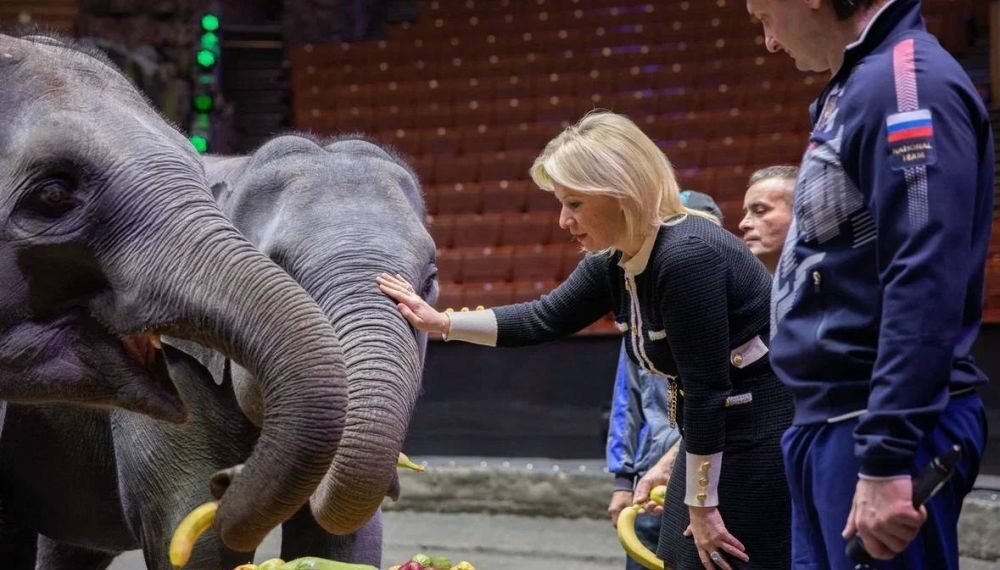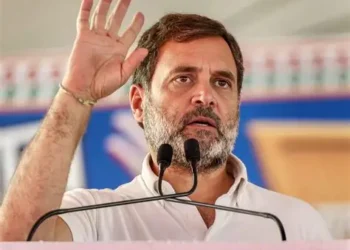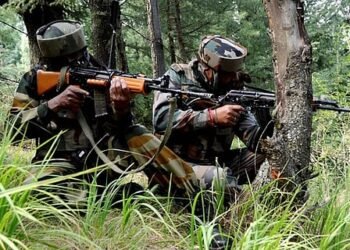Myanmar’s gift of six elephants to Russia highlights the deepening diplomatic and cultural bonds between the two nations. The elephants, symbols of power and good fortune in Myanmar, are set to join the Great Moscow State Circus and will eventually feature in a safari park in Kaluga. This initiative builds on Myanmar’s longstanding ties with Russia, bolstered by increased military cooperation and strategic support from Moscow following Myanmar’s 2021 military coup.
BY PC Bureau
In a symbolic gesture of “elephant diplomacy,” Myanmar’s junta has gifted six elephants—five females and one male—to the Great Moscow State Circus, marking the 75th anniversary of diplomatic relations between the two nations.
Myanmar’s outreach to Russia comes at a time when the military junta is facing strong resistance from rebel groups and is in urgent need of external support to maintain its grip on power.
Russia has maintained a generally supportive stance toward Myanmar’s military junta, especially since the February 2021 coup that ousted the democratically elected government of Aung San Suu Kyi. While many Western countries have imposed sanctions and condemned the junta’s actions, Russia has provided political and diplomatic backing to Myanmar’s military rulers, reflecting a broader trend of growing strategic cooperation between the two nations.
According toa report in Myanmar’s Irrvaddy newspaper, the elephants were transported aboard an Il-76 aircraft, accompanied by three trainers and a veterinarian, ensuring their well-being during the lengthy journey, which included two refueling stops. Edgard Zapashny, general director of the circus, emphasized the animals’ comfort, stating, “They are settling in comfortably despite the time-zone adjustment.”
A Carefully Orchestrated Gift
The only other elephant at the Moscow circus where the six calves from Myanmar have gone is called Ekol (Nicole) This was how she was kept there, in a barren cell . This is the life that awaits the Myanmar elephants 😢 #CircusHell pic.twitter.com/k02nQPfAnQ
— Ness Allan 🐘🐘🐘 (@nessallan) January 13, 2025
Myanmar’s ambassador to Russia, U Thit Lin Ohn, revealed that the selection and transfer of the elephants were personally overseen by Myanmar’s Prime Minister Min Aung Hlaing. The process included rigorous medical examinations and adherence to transportation protocols. Maria Zakharova, spokeswoman for Russia’s Foreign Ministry, expressed gratitude for the gift and was photographed feeding the elephants. She noted that overcoming the legal and logistical hurdles had taken nearly two years.
According to a report in Pravda, Anton Kobyakov, an advisor to Russian President Vladimir Putin, praised the gesture, calling it “a reflection of the trusting cooperation” between the two countries. He added, “The main task now is to maintain and increase the pace of strategic rapprochement between Russia and Myanmar.”
Building Cultural and Diplomatic Bridges
6 elephant calves sold by rogue state Myanmar to a notoriously CRUEL and abusive RUSSIAN CIRCUS . DISGUSTING! @CITES what use are you exactly? @TheMyanmarTimes @Myanmar_Now_Eng@MyanmarElephant #Circuscruelty #Russia #Elephantabuse #roguestates pic.twitter.com/h8qtJZAN5f
— Ness Allan 🐘🐘🐘 (@nessallan) January 12, 2025
The elephants will reside at the Great Moscow State Circus, with additional plans to feature them in a safari park in Russia’s Kaluga region by 2027. This initiative aligns with the Myanmar Cultural Center recently opened in the Ethnomir Park, highlighting the cultural ties between the two nations. The agreement for these developments was formalized during the St. Petersburg International Economic Forum (SPIEF) in 2023.
Strengthening Myanmar-Russia Relations
This is not the first time Myanmar has employed elephants as a diplomatic gift; a similar gesture was made in 2018. The animals, deeply revered in Myanmar as symbols of power and good fortune, play a prominent role in the country’s cultural identity.
The gift also reflects the growing military and diplomatic ties between Myanmar and Russia since the military coup in Myanmar in 2021. Junta chief Min Aung Hlaing has visited Russia multiple times, meeting with President Vladimir Putin and strengthening cooperation. This relationship includes Myanmar’s purchase of six Su-30 fighter jets from Russia, underscoring their strategic alignment.
As Myanmar faces international condemnation for human rights abuses and military actions, the move highlights its efforts to foster goodwill with key allies, using cultural symbols to cement its diplomatic relationships.
Key Aspects of Russia’s Stance on Myanmar’s Junta:
- Political and Diplomatic Support:
- Russia has refrained from publicly condemning Myanmar’s military coup and has supported the junta in international forums. The Russian government has often framed its approach as a principle of non-interference in the internal affairs of sovereign nations.
- Russia has consistently blocked or opposed actions in the United Nations that would impose stronger sanctions on Myanmar or hold the junta accountable for human rights violations. This aligns with Moscow’s broader foreign policy stance, which prioritizes sovereignty and non-interference in internal conflicts.
- Military and Strategic Cooperation:
- Arms Sales: Russia has been a significant supplier of arms to Myanmar, including fighter jets, artillery, and small arms. This military cooperation has been crucial for the junta as it faces ongoing resistance from rebel groups and ethnic militias.
- Military Training: Russia has provided military training and assistance to Myanmar’s armed forces, further solidifying the military relationship between the two countries.
- Su-30 Fighter Jets: Following the coup, Myanmar’s junta secured the purchase of six Su-30 fighter jets from Russia, which is seen as a sign of growing military collaboration.
- Diplomatic and Economic Ties:
- Russia and Myanmar have signed various agreements that strengthen their bilateral ties, including in areas like energy, mining, and infrastructure development. Myanmar is seen as an important partner for Russia in the region, especially as both countries face Western sanctions.
- Russia has also provided diplomatic cover for Myanmar’s military regime at international forums like the UN, where it has worked to block attempts at international condemnation or intervention in Myanmar’s internal affairs.
- Economic and Cultural Initiatives:
- Russia and Myanmar have worked together on various projects to boost trade and economic ties, including joint ventures in the energy and mining sectors.
- Cultural exchanges, such as the symbolic gift of elephants, have also been used to strengthen diplomatic relations, demonstrating Russia’s long-term commitment to supporting the junta.
Why Russia Supports Myanmar’s Junta:
- Strategic Partnership: Myanmar provides Russia with a foothold in Southeast Asia, a region that is important for Russia’s geopolitical and economic interests.
- Shared Opposition to Western Influence: Both countries share a mutual opposition to Western influence and interference. Russia has positioned itself as a counterbalance to Western power, and supporting Myanmar’s junta fits within this broader strategy.
- Economic Interests: Myanmar, rich in natural resources, is a valuable economic partner for Russia, which is looking to diversify its economic ties amid ongoing sanctions from Western countries.
Overall, Russia’s support for Myanmar’s military junta is part of a broader geopolitical strategy to maintain influence in Asia, counterbalance Western power, and foster relationships with regimes that are often isolated by the international community.













